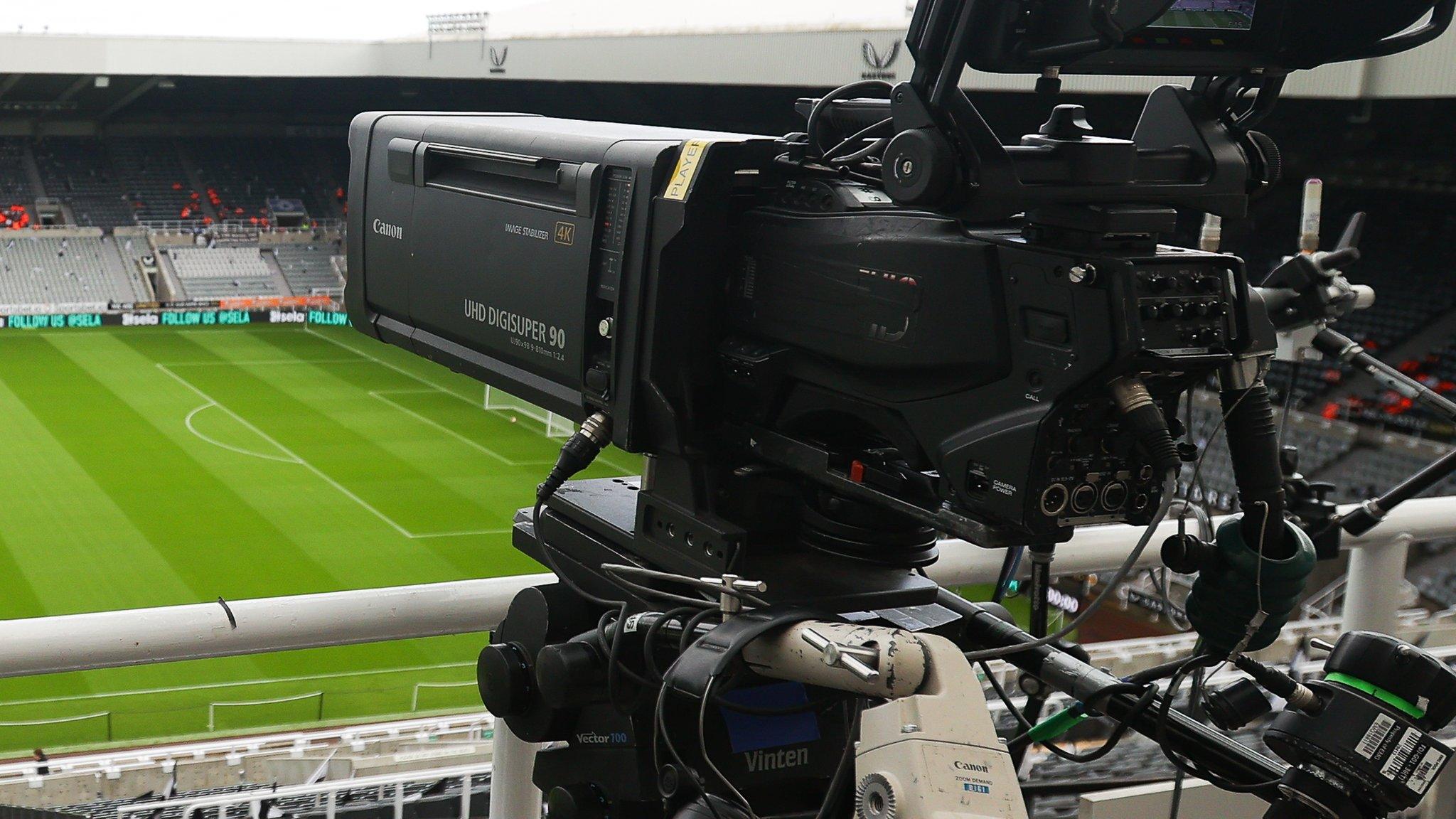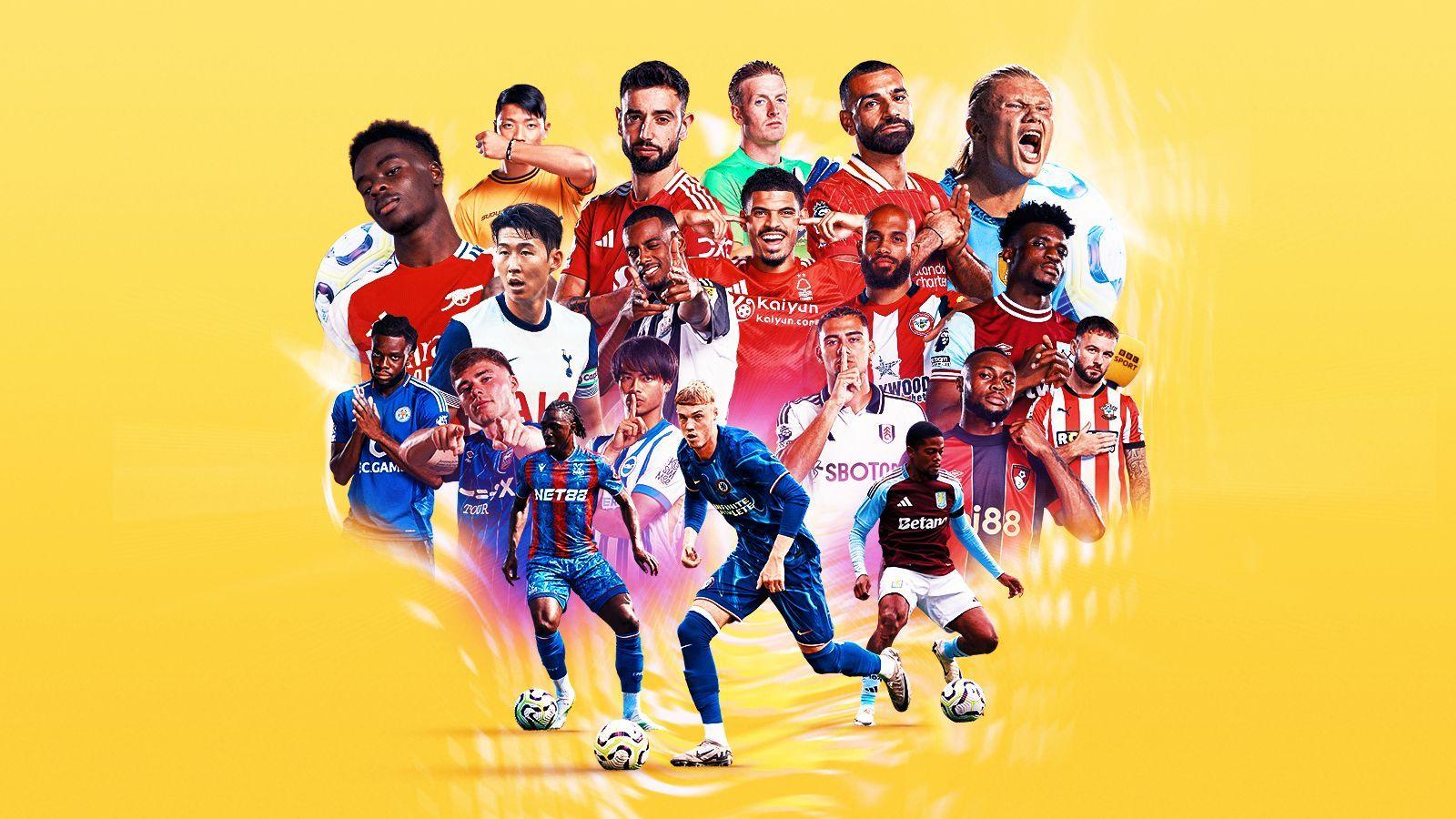New season, new laws - what's changing this season?
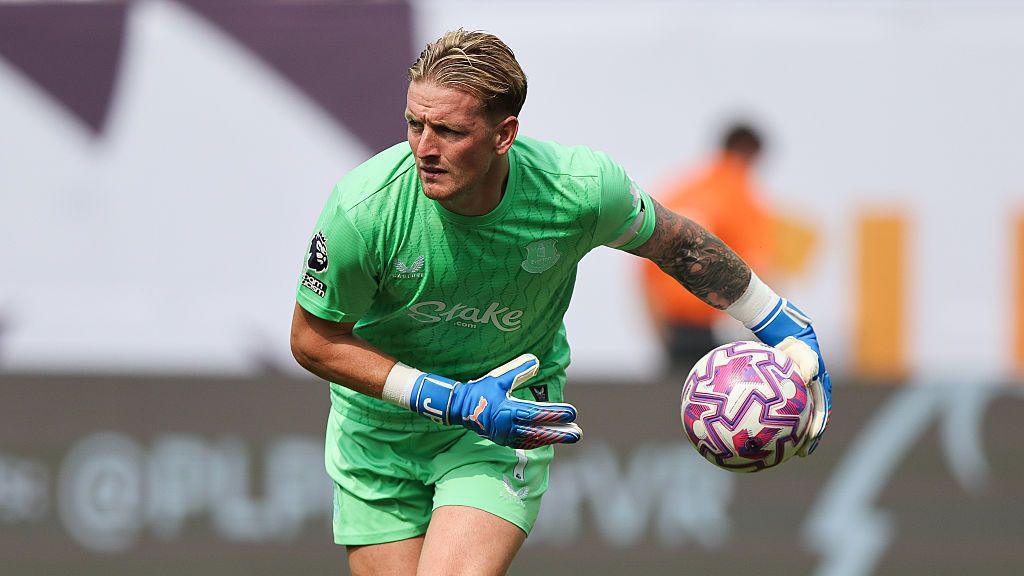
Goalkeepers such as Jordan Pickford may be penalised more often for holding on to the ball too long this season
- Published
As with every summer there have been a few tweaks in football's laws.
Many were introduced in the Fifa Club World Cup and the European Under-21 Championship - and will be implemented in the Premier League and beyond this season.
BBC Sport has a look at what's new.
'The eight-second rule'
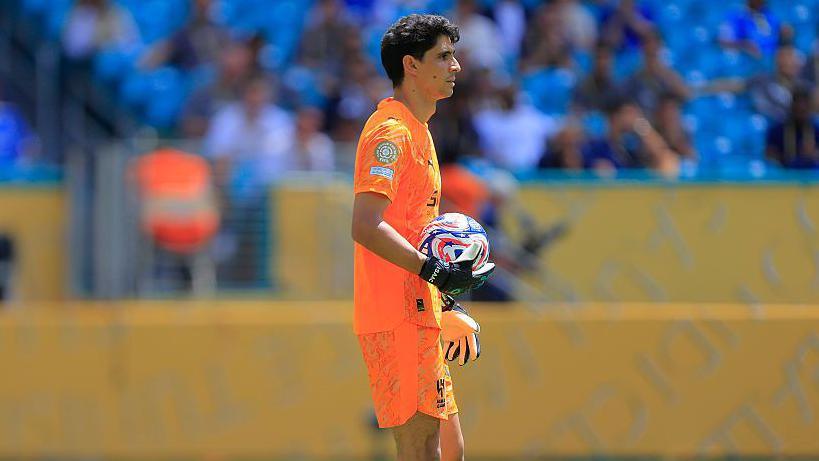
Al-Hilal keeper Bono could have cost his team the Club World Cup game against Real Madrid after hanging on to the ball for too long
Perhaps the biggest change means a goalkeeper holding the ball for more than eight seconds will be punished with a corner for the opposition.
It is hoped this will clamp down on time-wasting.
Until now the law had been six seconds and the punishment of an indirect free-kick - but it was barely ever applied.
Referees will warn the goalkeepers with a five-second countdown.
The new law applies across football now and was seen in action at the Club World Cup.
Al-Hilal keeper Yassine Bounou conceded a corner deep into injury time in their 1-1 draw against Real Madrid after holding onto the ball too long.
Luckily for him Real could not fashion a winner from the set-piece.
Former Premier League assistant referee Darren Cann believes this is a "really positive law change".
He told BBC Sport: "It will undoubtedly speed up the game. I'm confident that goalkeepers will adapt well to this law change and will release the ball in a timely manner almost all of the time.
"I don't envisage referees having to award corners for this situation very often during the season."
Eight-second goalkeeper rule - what happens next?
- Published3 March
'Only the captain rule'
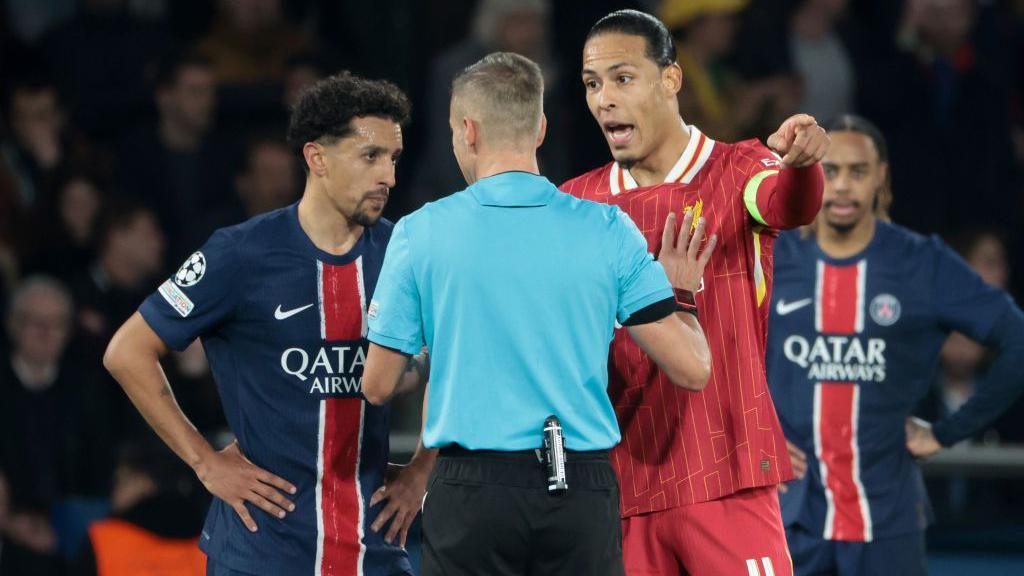
Here are PSG and Liverpool captains Marquinhos and Virgil van Dijk talking to referee Davide Massa in the Champions League this season - a rule being adopted in the Premier League
Only captains will be allowed to approach referees during Premier League matches this season.
Yellow cards can be shown to players who approach officials without permission and behave in a disrespectful manner.
If the captain is a goalkeeper, a team can provide an alternate player before kick off.
The International Football Association Board says this is recommended, but not compulsory, for every competition - but the Premier League will adopt it.
The initiative was trialled in the Champions League, Europa League and Uefa Conference League last season.
Cann added: "This is another very welcome law change which should help to improve the image of the game and stop the unnecessary surrounding of the referee. Under the laws of the game, the captain doesn't have any special status or privileges but does have a degree of responsibility for the behaviour of the team.
"In practical terms, if the referee wants to speak to the captain only, the referee will tap their own arm [to indicate the captain's armband]. Players should then allow the referee to converse with the captain only.
"This should aid on-field behaviour on the whole but if a player doesn't heed the warning from the referee and continues to remonstrate, they should receive a yellow card."
Double-kick penalties can be retaken
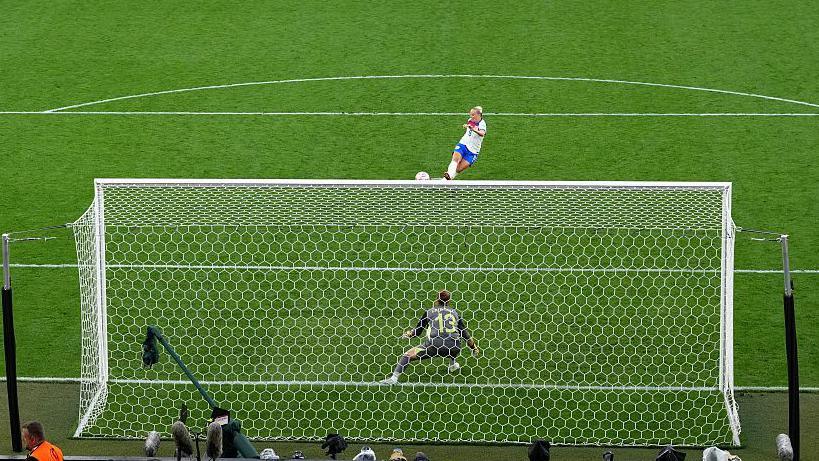
Beth Mead slipped as she took a penalty in the Women's Euros - but was allowed to retake it under the new laws
A rare one that may well not be needed all season in the Premier League, but players will be allowed to retake a penalty if they accidental touch it twice while kicking it... so long as the effort went in.
The new law has already been used this summer in the Women's European Championship final penalty shootout.
England's Beth Mead slipped with a double touch as she scored a penalty in the shootout against Spain - and had to retake it, with her second effort saved by keeper Cata Coll.
But under the old laws she would not even have been allowed to retake it as it would have gone down as a miss.
A high-profile incident also involved Atletico Madrid forward Julian Alvarez last season. He slipped as he took a penalty in a Champions League shootout against Real Madrid with the ball making slight contact with his standing leg.
The goal was not given, Alvarez was not allowed a retake and Atletico lost the shootout and the tie.
Now - as with Mead - that would be retaken, so long as it is clearly unintentional. If the kick is missed and in general play - like in a Premier League game - then the defending team would have an indirect free-kick.
This rule change is "sensible", according to former assistant referee Cann.
"Should a penalty taker accidentally have two touches and score, the penalty will be retaken [instead of an indirect free-kick being awarded]," he said.
"This was as a result of Julian Alvarez's accidental 'two-touch penalty' in the Champions League last season. This can be very difficult to detect for the on-field referee, so is always checked by the VAR in case of a double touch."
Law change on 'double-touch' penalties after Alvarez row
- Published3 June
Crackdown on grappling in the penalty area
It's something that happens in every match and now officials have been ordered to crackdown on incidents that see players grappling in the box.
Referees and VARs will take note of whether the holding player's focus is on the ball or the opponent.
Last season in the Nottingham Forest v Brighton match, Forest were awarded a penalty after Tariq Lamptey was penalised for holding on to Morgan Gibbs-White, and referees will be on the lookout for similar offences in the new campaign.
While the league privately feels it has "got it about right" with their use of VAR technology - reducing total errors from 31 to 18 last season - holding in the box at set-piece situations is a key area they want close attention paid to.
Anything else?
There are other minor law changes unlikely to be noticed.
A drop ball may be given to a team who did not touch the ball last before play was stopped - if the referee deems they would have gained possession.
If a coach, substitute or player off the pitch for any reason touches the ball before it goes out of play - when it was clearly just about to go out - an indirect free-kick will be awarded, but no card will be issued.
Offsides are judged on the passing player's first point of contact with the ball. But from now on with goalkeepers only, it will be judged on their last point of contact.
More Premier League games rearranged?
This is not a new football law, but something which will affect Premier League scheduling this season.
A record nine clubs will compete in European competition this season - that is 45% of the league.
Liverpool, Arsenal, Manchester City, Chelsea, Newcastle and Tottenham are in the Champions League, which will be played on Tuesday and Wednesdays.
Aston Villa and Nottingham Forest are in the Europa League, and Crystal Palace are in the Conference League (subject to appeal), with most of those games due on Thursdays.
But the Premier League has warned "there is an increased likelihood of fixtures moving at relatively short notice" if teams reach the knockout stages in Europe.
However, any games moved to a Sunday (usually at 14:00) as part of the European rescheduling will be shown on Sky Sports in a new TV deal.
Semi-automated offsides will also continue this season, having been introduced in the final weeks of 2024-25.
Related topics
- Published18 June
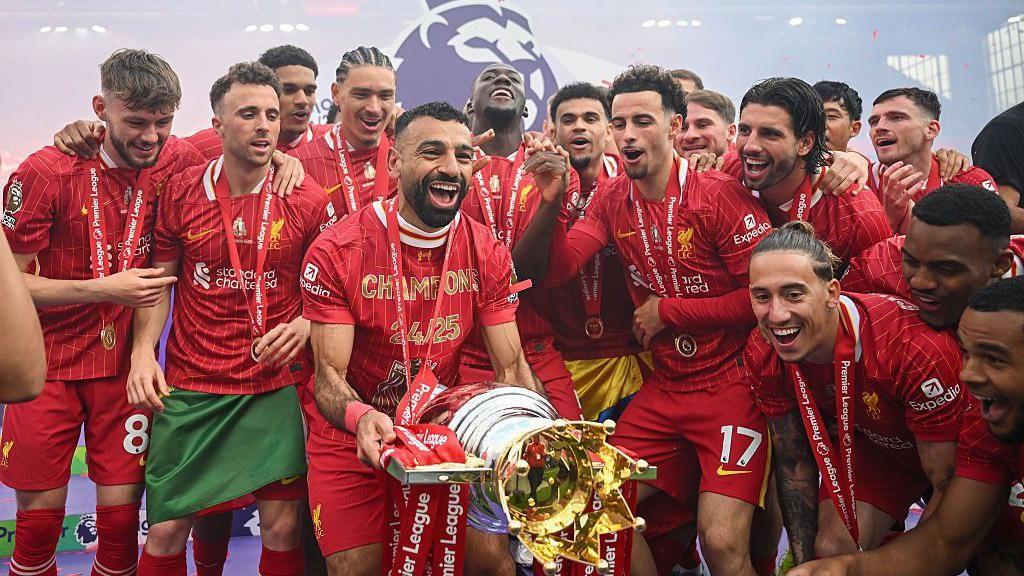
- Published4 December 2023
